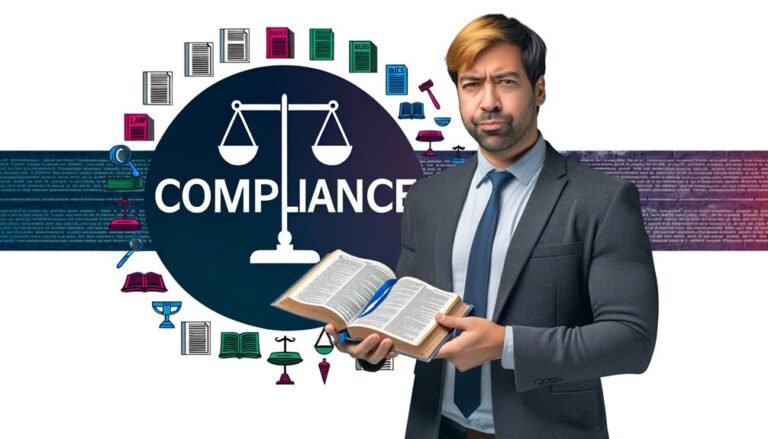Sustainable Decision Making: A Key Soft Skill for Modern Business
In today’s eco-conscious business landscape, sustainable decision making has emerged as a crucial soft skill for professionals and leaders. It encompasses making environmentally conscious and ethically sound decisions that contribute to the greater good of society. Businesses are now recognizing the importance of sustainability in their operations and are incorporating it into their decision-making processes.
Key Takeaways
- Sustainable decision making is a vital soft skill in today’s business world.
- It involves making environmentally conscious and ethically sound decisions.
- Businesses are incorporating sustainability into their decision-making processes.
- Embracing sustainable decision making contributes to the greater good of society.
- Professionals with strong sustainable decision-making skills are in high demand.
Understanding Sustainability in Business
Sustainability in business is a critical concept that focuses on an organization’s impact on the environment and its social responsibilities. In today’s world, businesses are increasingly recognizing the importance of sustainable practices and incorporating them into their operations. By prioritizing sustainability, organizations can contribute to the well-being of the planet and society while also reaping various benefits.
One popular framework for measuring sustainability efforts is the triple bottom line. This approach takes into account three key factors: people, planet, and profit. By considering these dimensions, businesses can track their progress and ensure that sustainability goals are not overshadowed by short-term profit motives. Let’s take a closer look at each aspect of the triple bottom line:
People
Sustainability in business involves prioritizing the well-being and welfare of people. This includes employees, customers, suppliers, and local communities. By fostering a healthy and inclusive work environment, businesses can attract and retain talent, improve employee satisfaction, and enhance their reputation. It also means considering the social impact of business activities and supporting initiatives that promote equality, diversity, and community development.
Planet
Protecting the planet is a fundamental aspect of sustainability. Organizations need to minimize their environmental footprint and aim for sustainable resource consumption. This involves adopting practices such as reducing waste and emissions, conserving energy and water, using renewable resources, and implementing efficient supply chain management. Businesses that prioritize sustainable practices contribute to the preservation of natural resources and mitigate the negative impact of their operations on the environment.
Profit
Contrary to popular belief, sustainability and profit are not mutually exclusive. In fact, sustainable practices can lead to financial benefits for businesses. By implementing strategies that save resources, optimize operations, and reduce costs, organizations can improve their bottom line. Moreover, sustainable businesses often attract environmentally conscious consumers who are willing to pay a premium for eco-friendly products and services. Embracing sustainability can also enhance brand reputation and create a competitive advantage in a socially responsible market.
Embracing sustainability in business not only aligns with ethical principles but also offers tangible benefits for organizations. By considering the triple bottom line approach, businesses can make environmentally conscious decisions, contribute to societal well-being, and build a stronger bottom line. Incorporating sustainability into the core of business strategies is an essential step towards creating a more sustainable and prosperous future.
| Aspect | Description |
|---|---|
| People | Prioritizing the well-being of employees, customers, and communities through inclusive practices, equal opportunities, and community engagement. |
| Planet | Reducing environmental impact through sustainable resource management, energy conservation, waste reduction, and responsible sourcing. |
| Profit | Improving financial performance through cost savings, efficient operations, and attracting customers who value sustainability. |
The Emergence of Sustainability in Business
The need for sustainable business practices has become more urgent, especially in the wake of global challenges such as the COVID-19 pandemic and climate change. Many major global companies are taking action by publicly disclosing their carbon targets and publishing sustainability reports. Despite progress, these companies are still falling short of the emissions reductions necessary to achieve the Paris Agreement. The business world is mobilizing around sustainability, recognizing both the risks and opportunities associated with climate change.
As businesses adapt to the changing global landscape, they are embracing sustainable business practices to minimize their environmental impact and ensure long-term viability. The recognition of climate change as a pressing issue has prompted companies to implement strategies that address their carbon footprint, promote renewable energy adoption, and prioritize resource conservation.
“Sustainability is no longer just a niche concept but a fundamental aspect of modern business operations. Organizations have realized that sustainable practices not only benefit the planet but also contribute to long-term success and profitability.”
Beyond environmental considerations, sustainable business practices also encompass social responsibility and ethical decision-making. By considering the interests of stakeholders, including employees, customers, and local communities, businesses can foster positive relationships and build a reputation for corporate citizenship.
A key aspect of sustainability in business is the adoption of a triple bottom line approach, which encompasses people, planet, and profit. This framework encourages organizations to consider the social and environmental impacts of their operations alongside financial performance. By integrating sustainable practices into their core strategies, businesses can achieve a balance between economic growth and societal well-being.
Benefits of Sustainable Business Practices
Sustainable business practices offer numerous benefits beyond the preservation of the planet. Companies that prioritize sustainability can attract environmentally conscious consumers who value ethical and responsible products and services. These consumers often exhibit loyalty towards brands that align with their values, contributing to long-term business growth and competitiveness.
Additionally, sustainable practices can lead to cost savings through energy efficiency measures, waste reduction, and streamlined operations. By optimizing resource use and minimizing waste generation, businesses can drive financial savings while minimizing their environmental impact.
Embedding Sustainability in Business Strategy
Integrating sustainability into business strategy requires a comprehensive approach that permeates all levels of the organization. It begins with creating a culture of sustainability and establishing clear goals and targets that align with the organization’s values and long-term vision.
This holistic approach involves engaging employees in sustainability initiatives, raising awareness about the importance of sustainability, and providing the necessary training and resources to drive change and innovation. Leaders play a crucial role in championing sustainability and setting an example for others to follow.
| Key steps for embedding sustainability in business strategy | Examples of Implementation |
|---|---|
| Conducting a sustainability assessment to identify areas for improvement | Conducting energy audits to identify opportunities for energy efficiency |
| Setting measurable sustainability goals and targets | Committing to carbon neutrality by a specific year |
| Engaging stakeholders in sustainability initiatives | Collaborating with suppliers to develop sustainable supply chain systems |
| Integrating sustainability considerations into decision-making processes | Including environmental impact assessments for new product development |
| Monitoring and reporting progress towards sustainability goals | Producing annual sustainability reports that disclose environmental performance |
By embedding sustainability in business strategy, organizations can create a positive impact on the environment, society, and their bottom line. The transition to sustainable business practices is not only crucial for addressing pressing global challenges but also for ensuring long-term success in a rapidly changing world.
Skills for Sustainable Decision Making
Developing sustainable decision making skills is essential for professionals looking to contribute to sustainability practices within their organizations. To effectively make sustainable decisions, individuals need to possess a combination of foundational knowledge, strong leadership abilities, and specific problem-solving skills.
Foundational Knowledge
A solid understanding of environmental science and climate change is critical for professionals involved in sustainable decision making. This knowledge allows individuals to assess the impact of their decisions on the environment and make informed choices that align with sustainability goals. Additionally, being aware of social issues relevant to their industry enables professionals to address social and ethical concerns while making sustainable decisions.
Strong Leadership
Strong leadership skills are indispensable for professionals seeking to drive sustainable decision making within their organizations. Effective leaders delegate tasks, foster team resilience, and ensure that decisions are made with an ethical and sustainable mindset. By setting an example and inspiring others, leaders can instill a culture of sustainability within their teams and organization as a whole.
Identifying Strategic Opportunities
Professionals with sustainable decision making skills are adept at identifying strategic opportunities that align with sustainability goals. They possess a forward-thinking mindset and actively seek out innovative solutions to complex problems. By recognizing opportunities for sustainable growth and development, these individuals help steer their organizations towards a more sustainable future.
Creative Problem-Solving
Creative problem-solving skills are crucial in sustainable decision making. Professionals must think outside the box and explore alternative approaches to traditional business challenges. By leveraging their creativity, they can devise sustainable solutions that address environmental and social concerns while also meeting business objectives.
Data Collection and Interpretation
Professionals with sustainable decision making skills understand the importance of collecting and interpreting data related to sustainability. They are proficient in assessing relevant metrics, such as greenhouse gas emissions and resource consumption, to measure the impact of their decisions. By leveraging data-driven insights, they can make informed choices and drive continuous improvement in sustainable practices.
The Importance of Understanding Sustainability Context
Employees at all levels of an organization should have a basic understanding of the sustainability context. This knowledge is essential for individuals to comprehend the relevance of sustainability to their role and industry. Additionally, understanding the global challenges and concepts like overshoot allows employees to contribute effectively to sustainable practices within their organization.
One key skill in sustainability is systems thinking, which involves understanding the interrelationships within complex systems. It requires a holistic perspective and the ability to identify the various interconnected elements that influence sustainability outcomes. By employing systems thinking, individuals can analyze and optimize the impact of their decisions on the environment, society, and the economy.
A vital aspect of sustainability context is embracing circular economy principles. The circular economy is an innovative approach that aims to minimize waste by using resources more efficiently and extending their lifespan. It encourages the reuse, repair, and recycling of materials, creating a closed loop system where resources are continuously circulated and waste is minimized. Embracing circular economy principles can contribute to the creation of more sustainable economies and drive positive environmental and social outcomes.
| The Importance of Understanding Sustainability Context |
|---|
Stakeholder Engagement in Sustainable Decision Making
Effective stakeholder engagement is crucial for sustainable decision making. Understanding and responding to the needs and concerns of various stakeholders, including employees, customers, local communities, and regulators, is essential. By actively involving stakeholders, professionals can gather valuable insights and ensure their decisions align with social and environmental impacts. This collaborative approach fosters transparency and accountability, resulting in better sustainability outcomes.
Project managers, for instance, engage with local communities to assess potential social and environmental impacts. By seeking input and involving community members in the decision-making process, project managers can mitigate negative consequences and create solutions that align with community expectations. Marketing managers, on the other hand, engage with customers to understand their preferences and expectations for sustainable products. This enables businesses to meet customer demands while driving sustainability initiatives.
The Importance of Collaboration and Communication
Effective collaboration and communication skills are essential for successfully implementing sustainability initiatives and gaining buy-in from all relevant parties. In a diverse stakeholder landscape, professionals need to navigate different perspectives, interests, and priorities. By fostering open and inclusive dialogue, professionals can build trust and create shared value.
“Collaboration is key to stakeholder engagement. By actively involving stakeholders, organizations can harness collective wisdom and create solutions that benefit everyone involved.”
Clear and concise communication is equally essential. Professionals should effectively communicate the purpose, benefits, and expected outcomes of sustainability initiatives to stakeholders. By addressing concerns, highlighting social and environmental impacts, and showcasing the business case for sustainability, professionals can gain support and drive change.
Key Skills for Effective Stakeholder Engagement
| Skills | Description |
|---|---|
| Active Listening | Attentively listening and understanding stakeholder concerns and perspectives. |
| Empathy | Understanding and considering the feelings and experiences of stakeholders. |
| Negotiation | Finding mutually agreeable solutions and reaching consensus among stakeholders. |
| Conflict Resolution | Managing and resolving conflicts that may arise during stakeholder engagement. |
| Effective Communication | Clearly conveying information, goals, and expectations to stakeholders. |
| Collaboration | Working together with stakeholders to achieve shared sustainability goals. |
By developing and honing these key skills, professionals can navigate complex stakeholder dynamics and drive successful sustainability initiatives.
Long-term Thinking and Decision Making for Sustainability
Sustainable decision making plays a vital role in addressing the challenges posed by climate change and ensuring long-term resilience for businesses. It requires careful consideration of the potential financial risks and opportunities associated with a changing climate. In this context, finance managers play a key role in incorporating climate-related factors into investment decisions, safeguarding the company’s long-term stability. By taking a proactive approach to long-term decision making, businesses can navigate environmental challenges and contribute to a more sustainable future.
Climate change poses significant financial risks for businesses across various industries. These risks can range from physical risks, such as damage to infrastructure from extreme weather events, to transitional risks, such as policy changes and shifts in consumer preferences. By factoring in these risks during the decision-making process, businesses can identify potential vulnerabilities and develop strategies to mitigate them. Additionally, they can seize opportunities to invest in sustainable technologies and practices, creating a competitive advantage in the evolving market.
“The financial implications of climate change are becoming increasingly clear. Companies that fail to incorporate climate-related factors into their decision-making processes may face significant financial losses in the future.”
To effectively incorporate long-term thinking into decision making, businesses can utilize various strategies and tools. Scenario planning, for example, involves developing alternative future scenarios to assess the potential impacts of climate change on the business. This enables managers to identify risks and opportunities and make informed decisions that align with the organization’s long-term sustainability goals.
Furthermore, businesses can collaborate with experts and industry peers to stay informed about emerging trends and best practices in sustainable decision making. By sharing knowledge and experiences, companies can collectively contribute to a more sustainable and resilient business landscape.
The Importance of Risk Assessments
One crucial aspect of long-term decision making for sustainability is conducting comprehensive risk assessments. This involves evaluating the potential financial risks associated with climate change and considering them in investment decisions. By incorporating risk assessment frameworks, such as the Task Force on Climate-Related Financial Disclosures (TCFD) recommendations, businesses can identify and respond to climate-related risks effectively.
These risk management practices extend beyond financial considerations. Businesses should also assess the potential social and environmental impacts of their decisions, ensuring that they align with their sustainability goals and contribute positively to society as a whole.
| Financial Risks | Examples |
|---|---|
| Physical Risks | Rising insurance costs due to increased extreme weather events |
| Transition Risks | Regulatory changes affecting carbon-intensive industries |
| Reputation Risks | Consumer backlash against companies with unsustainable practices |
| Operational Risks | Disruptions in the supply chain due to climate-related events |
By proactively addressing these risks and integrating climate-related factors into strategic decision making, businesses can protect their long-term financial stability and contribute to a more sustainable future.
Data Collection and Reporting for Sustainable Outcomes
Collecting, analyzing, and interpreting data is vital for driving and communicating sustainable outcomes. In the era of sustainability, organizations are increasingly recognizing the importance of data in shaping their decision-making processes. Professionals, such as risk managers, play a crucial role in utilizing data to assess the financial risks associated with environmental challenges and develop effective risk mitigation strategies. By identifying key metrics like greenhouse gas emissions and waste production, businesses can track their sustainability performance and identify areas for improvement.
Sustainability reporting is an essential tool for organizations to transparently communicate their sustainability efforts both internally and externally. Through sustainability reports, organizations can showcase their commitment to sustainability and demonstrate progress towards set goals. These reports provide stakeholders, such as investors, employees, and customers, with valuable insights into a company’s sustainability practices, performance, and future aspirations. The data-driven nature of sustainability reporting allows organizations to measure their progress objectively and hold themselves accountable for their sustainability commitments.
“Data collection and reporting are fundamental components of effective sustainability management, enabling organizations to track their progress, identify opportunities for improvement, and engage stakeholders in achieving sustainable outcomes.” – Sustainability Analyst at Global Sustainability Solutions
Data Collection Strategies
In order to collect meaningful data for sustainability reporting, organizations need to implement robust data collection strategies. These strategies may include:
- Implementing data management systems to streamline data collection processes
- Establishing clear data collection standards and protocols
- Engaging employees at all levels to contribute accurate and timely data
- Collaborating with relevant stakeholders to gather comprehensive and diverse data
- Using advanced technologies, such as Internet of Things (IoT) sensors and artificial intelligence, to automate data collection and improve accuracy
Sustainability Reporting Frameworks
Organizations often follow recognized sustainability reporting frameworks to guide their reporting efforts. These frameworks provide a standardized structure for reporting and enable comparability across different organizations. Some commonly used sustainability reporting frameworks include:
| Framework | Description |
|---|---|
| Global Reporting Initiative (GRI) | An international framework that sets out guidelines for reporting on economic, environmental, and social impacts |
| Carbon Disclosure Project (CDP) | An initiative that allows companies to disclose their greenhouse gas emissions and climate change strategies |
| Sustainability Accounting Standards Board (SASB) | A framework that helps companies report financially material sustainability information to investors |
These frameworks enable organizations to structure their sustainability reports in a comprehensive and meaningful way, ensuring that all relevant aspects are covered and reported transparently.
Incorporating data collection and reporting into sustainability practices is not only a means to measure progress but also a way to identify areas of improvement and drive effective decision-making. By leveraging the power of data, organizations can make informed choices that contribute to their sustainability goals and enhance their overall performance. In an ever-evolving global landscape, data-driven sustainability management is becoming increasingly essential for businesses aspiring to create positive environmental and social impacts while ensuring long-term success.
Collaboration and Communication in Sustainability Initiatives
Successful implementation of sustainability initiatives requires strong collaboration and communication skills. Professionals must effectively work in teams, across departments, and beyond organizational boundaries to drive sustainable change. By collaborating with various stakeholders, they can bring diverse perspectives and expertise to the table, ensuring comprehensive and thoughtful strategies. Effective communication is crucial in conveying the importance and impact of sustainability initiatives to all stakeholders.
In the words of sustainability pioneer Jane Goodall:
“The greatest danger to our future is apathy. We need more people who care, more people who are willing to work together and bring their skills in collaboration with others to make a difference.”
Change management, adaptive leadership, and empathy are key skills for driving sustainability initiatives. Change can be challenging, and professionals must be adept at managing resistance, fostering a culture of adaptability, and inspiring others to embrace sustainability. Adaptive leadership is essential in navigating complexities and leading through uncertainty, while empathy enables understanding and meaningful engagement with stakeholders.
Creating a Supportive and Inclusive Culture
A supportive and inclusive culture is essential for fostering a mindset of sustainability within an organization. It encourages employees to actively participate in sustainability efforts, make informed decisions, and engage in continuous learning and improvement. When employees feel empowered and valued, they are more likely to contribute their ideas and efforts towards sustainability initiatives.
Collaboration and Communication in Action
Let’s take a look at a hypothetical example of collaboration and communication in sustainability initiatives:
| Stakeholder | Role | Collaboration |
|---|---|---|
| Employees | Engagement Managers | Working with cross-functional teams to identify and implement energy-saving measures within the organization, such as reducing paper usage and promoting energy-efficient practices. |
| Customers | Marketing Team | Engaging with customers to understand their sustainability expectations and preferences, and incorporating their feedback into product development and marketing strategies. |
| Suppliers | Sourcing Managers | Working collaboratively with suppliers to ensure transparent and sustainable supply chains, including responsible sourcing practices and reducing waste throughout the value chain. |
This collaborative approach ensures that sustainability initiatives consider different perspectives and leverage collective knowledge and resources. It drives a unified effort towards achieving sustainable outcomes, both within the organization and beyond.
By fostering collaboration and effective communication, sustainability initiatives can thrive and create a lasting positive impact. The power of working together towards a common goal is instrumental in building a sustainable future.
Conclusion
As businesses navigate the demands of the modern world, sustainable decision making has emerged as a crucial skill for success. With a growing focus on ethical and environmentally conscious practices, organizations are recognizing the need to develop skills that contribute to the greater good of society.
To build a workforce equipped with these skills, it is essential to understand the sustainability context and embrace systems thinking. By engaging stakeholders and adopting a long-term mindset, businesses can make informed decisions that consider both financial risks and environmental impacts. Collecting and reporting data is vital in measuring progress and demonstrating commitment to sustainability.
Effective collaboration and communication play a pivotal role in driving sustainability initiatives. By fostering a culture of inclusivity and empowering employees to make sustainable decisions, organizations can develop a mindset of sustainability that drives innovation and resilience. Talent management strategies should prioritize reskilling and upskilling existing employees, creating a workforce that can address skill gaps and drive long-term success.
In this rapidly changing landscape, organizations have the opportunity to embrace sustainability, nurture talent, and shape a future that is both environmentally conscious and economically prosperous. By cultivating the necessary skills for sustainable decision making and adopting a holistic approach to talent management, businesses can contribute to building a sustainable and thriving world for generations to come.







